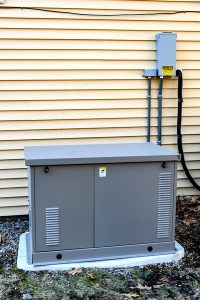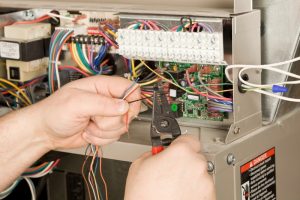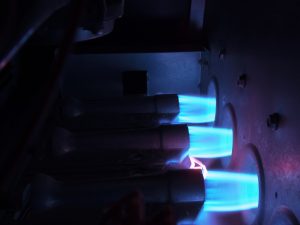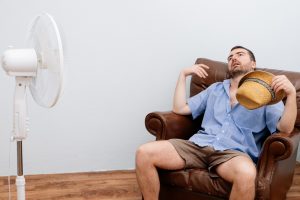 The recent polar vortex dropped Chicagoland into an extreme deep freeze, bottoming out the temperature at a record-breaking low. We hope you and your family made it through this intense weather—you’ve probably never loved your home heating system as much as you did during this time!
The recent polar vortex dropped Chicagoland into an extreme deep freeze, bottoming out the temperature at a record-breaking low. We hope you and your family made it through this intense weather—you’ve probably never loved your home heating system as much as you did during this time!
Now that the freeze of the vortex has passed, you may be thinking about what might have happened if the power went out in your home during the extreme cold. It’s not a pleasant thought. In fact, it’s bit terrifying. Unfortunately, extreme weather conditions are when power outages are most likely. During this warmer stretch of weather, you might be giving serious thought to having your home’s electrical power protected with a whole-house generator. This is great planning, and we offer professional services to install a whole-house generator in Wilmette, IL or elsewhere in Chicagoland. Don’t hesitate to call us to ask for more information.
 At ServiceMax, we offer a wide range of services for our customers. We’re both an electrical and
At ServiceMax, we offer a wide range of services for our customers. We’re both an electrical and  The question in the headline may sound a bit melodramatic. But when it comes to
The question in the headline may sound a bit melodramatic. But when it comes to  What type of heating system do you use to warm up your house during a tough Chicagoland winter? If your home is like the majority, the answer is a
What type of heating system do you use to warm up your house during a tough Chicagoland winter? If your home is like the majority, the answer is a  At Malek Heating & Cooling, we understand that helping people find ideal comfort in their homes means more than ensuring they have an air conditioning and heating system that will provide the right temperatures around the year. It also means finding the correct balance of relative humidity, keeping the air from becoming too muggy or too dry. That’s why we install both
At Malek Heating & Cooling, we understand that helping people find ideal comfort in their homes means more than ensuring they have an air conditioning and heating system that will provide the right temperatures around the year. It also means finding the correct balance of relative humidity, keeping the air from becoming too muggy or too dry. That’s why we install both 
 There are many proverbs about the strange weather that occurs in March. You may have heard that March “comes in like a lion and leaves like a lamb.” Or perhaps you’ve heard it “comes in like a lamb and leaves like a lion.” That’s the nature of the weather during this month that straddles winter and spring: it’s difficult to predict exactly which way the temperature will go—
There are many proverbs about the strange weather that occurs in March. You may have heard that March “comes in like a lion and leaves like a lamb.” Or perhaps you’ve heard it “comes in like a lamb and leaves like a lion.” That’s the nature of the weather during this month that straddles winter and spring: it’s difficult to predict exactly which way the temperature will go—